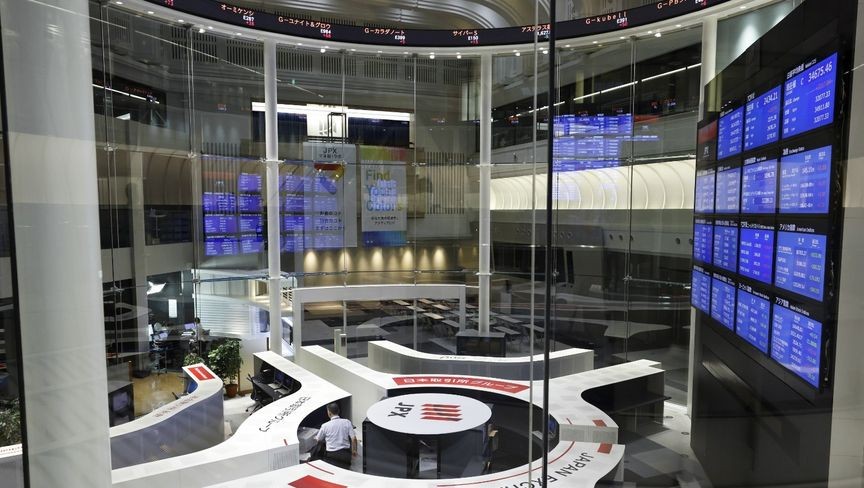Asian stocks rose ahead of key decisions by the Federal Reserve and the Bank of Japan that will help set the course for global interest rates. The yen fell against the dollar.
MSCI Asia Pacific rose 0.3%, with major indexes in Japan and Hong Kong leading the gains, while Chinese stocks were mixed. That came after the S&P 500 and Nasdaq 100 advanced amid further signs the Federal Reserve will cut interest rates. The MSCI AC World Index is less than 0.5% away from reclaiming its record highs.
Bets for Fed easing have been boosted, with minutes from the latest meeting showing that several officials acknowledged there is a reasonable case for a rate cut. But there is a degree of caution ahead of Chairman Jerome Powell’s speech at the Jackson Hole Economic Symposium on Friday, when he will have a chance to provide further clarity to investors.
relative calm
“Markets seem to be continuing to stabilize after a two-week panic over U.S. recession fears, yen-linked carry trades and fading momentum,” said Chetan Seth, Asia-Pacific equity strategist at Nomura. “Markets are now climbing the wall of anxiety this week, which we consider to be relatively calmer.”
The yen paused after four sessions of gains. Bank of Japan Governor Kazuo Ueda will face intense market scrutiny tomorrow when he speaks to lawmakers, after the central bank’s rate hikes and hawkish signals contributed to global market turmoil earlier this month.
U.S. government bonds were flat in Asian trading after gains in short-dated bonds in the previous session pushed two-year yields down about 10 basis points before rebounding slightly. Traders were again pricing in more than a percentage point of U.S. rate cuts by the end of 2024, starting next month.
Junya Tanase, chief Japanese currency strategist at JPMorgan, said that market expectations about US and Japanese monetary policy were driving the currency pair, but in reality, developments on the US side are more dominant. “Any comments from Jackson Hole will be important,” she added.
American Jobs
The prospect of a revised U.S. job growth has added more evidence for traders to anticipate a September rate cut. The number of workers on the payroll is expected to have been revised down by 818,000 in the 12 months through March, or about 68,000 fewer per month — according to the Bureau of Labor Statistics’ preliminary standard adjustment. That’s the biggest downward revision since 2009.
Elsewhere, Chinese tech stocks rebounded after Xiaomi Corp.’s better-than-expected second-quarter earnings report eased some earnings concerns. China also launched an anti-subsidy investigation into dairy imports from the European Union, amid escalating trade tensions between the two sides.
Central bankers are unlikely to offer much forward guidance at the Jackson Hole Economic Symposium, as they may prefer to focus on their reliance on data, according to Jennifer McEwen of Capital Economics.
“With most economies expanding, inflation on target, and financial markets having stabilized after recession fears a few weeks ago, there is not as much pressure on central bankers to steer markets as there was in previous events,” she said. “But there is still a risk that they will keep interest rates too high for too long.”
In commodities markets, oil prices fell slightly on Thursday, extending their decline from the previous session. Gold also saw a slight decline after trading near its highest level yesterday, due to expectations of a rate cut by the Federal Reserve.






































